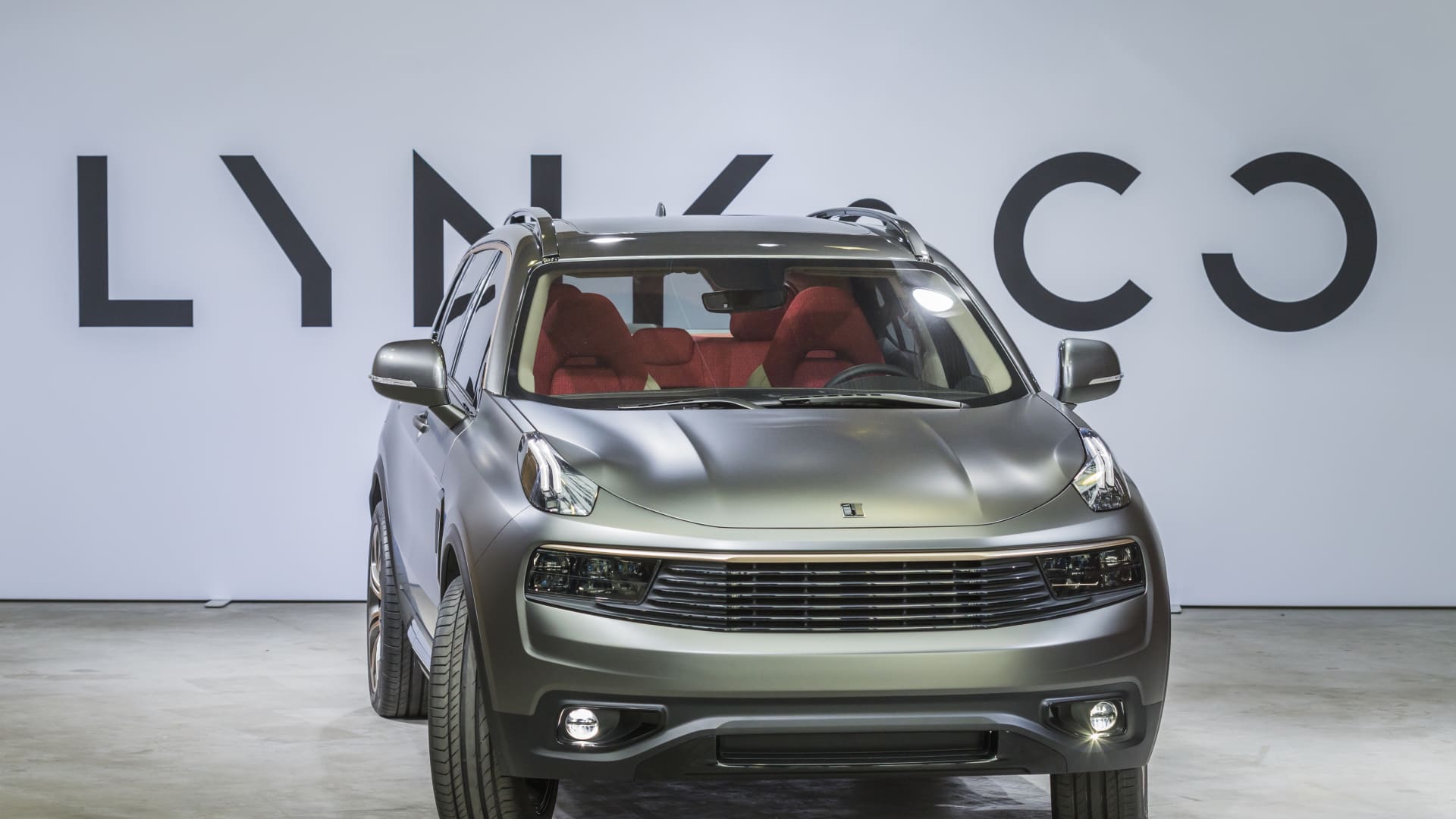BEIJING — Companies from Nvidia to Huawei are chasing the market for in-vehicle tech as the electric car industry booms, with Ecarx emerging as a new contender.
Since 2017, Chinese car conglomerate Geely‘s founder and chairman, Eric Li, has been building Ecarx that provides software and chip systems for digital car cockpits and driver-assist.
The company on Wednesday reported its fourth-quarter revenue surged 22% from a year earlier to $263 million. Geely’s car brands, such as Lynk and Co, made up 70% of that revenue.
For the same quarter, Nvidia reported automotive revenue fell 4%, year on year, to $281 million, even as CEO Jensen Huang has called the segment the company’s “next billion-dollar business.“
Nvidia counts Geely’s premium electric car brand Zeekr as a customer for its Drive Orin chip, which uses artificial intelligence to power driver-assist capabilities known as “system on a chip.” Li Auto, BYD’s Denza brand and Xiaomi are among Nvidia’s other automotive customers.
Ecarx co-founder and CEO Ziyu Shen told CNBC in an interview this week that Nvidia enjoys an edge when it comes to AI-based autonomous driving systems.
“We can’t compete with them in this area,” he said, but noted there’s still about 70% or 80% of the car market that doesn’t need such advanced tech, and can buy simpler driver-assist tech focused on safety.
“Safety will be a very important entry point for us,” he said in Mandarin, translated by CNBC.
Ecarx sells its own “system on a chip” Antora 1000 that’s used by Lynk and Co.
Shen claimed his company’s current products compete directly with Qualcomm’s Snapdragon chips, and that new offerings set to be announced on March 20 will be at the same level as Nvidia’s Orin X.
So despite conceding Nvidia’s current primacy in AI-based tech, Shen is looking at diverse ways to grab more market share in autos.
Geopolitical advantage?
Ecarx plans to benefit from selling to local Chinese companies that need to buy from domestic firms due to geopolitical reasons, Shen said, adding that the company works with nearly all major automakers except for BYD in China.
He expects the overseas market to be a growing business for the company as well and something that offers it an edge over Chinese competitors such as Huawei.
In the last few months, Huawei has disclosed several agreements to sell its operating system and other car tech to automakers in China but has yet to announce major overseas deals in the sector. The company also sells electric cars through its co-developed brand Aito.
“I think it is very difficult for Huawei to go global because it is a sanctioned company,” Shen said. “I think it will be very hard for Western companies to cooperate with them.“
When asked about the impact of U.S. restrictions on Chinese tech, Shen claimed his company has isolated China operations from its overseas business, and follows local compliance requirements pertaining to AI chip-related business in the U.S. as well as intellectual property protection.
Ecarx’s website lists offices in the U.S. and Europe, as well as China.
Shen aims Ecarx to grow its overseas sales from around 10% of current revenue to at least 25% next year, and to at least 40% in the next four or five years.
“To be honest, if we can’t serve the world’s five largest automakers, it’s very hard for us to become a big company,” he said, “because none of China’s [original equipment manufacturers] are among the world’s top five.”
BYD was by far the largest car company in China last year, followed by Volkswagen’s local joint venture with FAW, according to data from the China Passenger Car Association that included fuel-powered vehicles. Geely ranked third.
In new energy vehicles, which include hybrids and battery-powered cars, BYD ranked first, followed by Tesla, GAC’s Aion brand and then Geely, according to association data.
